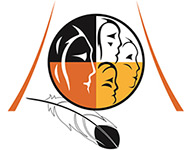| Hour |
Activity |
Speaker |
| 8:30 |
Opening and Registration |
|
| 9 am |
Opening |
Maureen Papatie |
| 9:30 |
Speeches
Welcome address
Presentation of the 6th Seminar on the Ethics of Research with Indigenous Peoples: Research Experiences, Initiatives and Governance |
Louis Imbeau (UQAT)
Suzy Basile (UQAT) |
| 9:30 |
Opening Conference
50 Years of Research with First Nations and Inuit People in Quebec |
Carole Lévesque (INRS) |
| 10:45 |
Coffee break |
|
| 11 am |
Panel 1
Governance and Management of Research Activities |
Speakers to be confirmed. Minwashin, Minwashin
Jedidat Matoush et Vincent Gautier-Doucet, Aashukin Naanituuchischayitimuwin aah Kiniwaapitiikinuuch
Julie Girard, Observatoire des réalités autochtones urbaines du Regroupement des centres d’amitié autochtones du Québec
Sylvie Pinette and Vanessa Ratté, Education Department of the Thsakapesh Institute |
| 12:15 |
Lunch
(provided for people in Val-d’Or) |
|
| 13:15 |
Panel 2
Community and Territorial Issues |
Sipi Flamand, Chief of the Atikamekw Council of Manawan
Jennifer Petiquay-Dufresne, Executive Director of the
Bureau du Principe de Joyce
Chantal Kistabish, Chief of the Anicinape community of Pikogan
Ronald Brazeau, Deputy Director at the Natural Resources Department of Lac Simon |
| 14:15 |
Panel 3
Governance of Information Heritage |
Stéphane Laroche, Val-d’Or Native Friendship Centre
Thanissa Lainé et Emilie Grantham, First Nations of Quebec and Labrador Health and Social Services Commission
Edgar Blanchet, Bureau du Ndakina de W8banaki |
| 15:15 |
Coffee break |
|
| 15:30 |
Panel 4
Student Experiences |
Denis Vollant, Member of the Uashat Mak Mani-utenam community
and graduate student at INRS
Linda Shecapio, Member of the Mistissini community
and graduate student at UQAT
Myriam Landry, Member of the Wôlinak community
and graduate student at UQAT
Nadine Vollant, Member of the Uashat Mak Mani-utenam community
and graduate student at INRS |
| 16:30 |
Launch of Volume 35 no 1 of the journal Nouvelles pratiques sociales
Peuples autochtones et souveraineté des données : enjeux de recherche et de souveraineté numérique |
Sous la direction de Suzy Basile, Ioana Radu et Emmanuelle Piedboeuf |
| 17 pm |
End of the first day and free evening |
|





 Suzy Basile
Suzy Basile Nancy Wiscutie-Crépeau
Nancy Wiscutie-Crépeau Julie Lise Simard
Julie Lise Simard Dario Izaguirre
Dario Izaguirre Gerthie Chachai
Gerthie Chachai Sylvain Paquette
Sylvain Paquette Anne Ardouin
Anne Ardouin Sébastien Brodeur-Girard
Sébastien Brodeur-Girard Carole Lévesque
Carole Lévesque Karine Gentelet
Karine Gentelet Annabelle Cumyn
Annabelle Cumyn Jean-François Ethier
Jean-François Ethier Aaron Franks
Aaron Franks Emmanuelle Piedboeuf
Emmanuelle Piedboeuf Ioana Radu
Ioana Radu